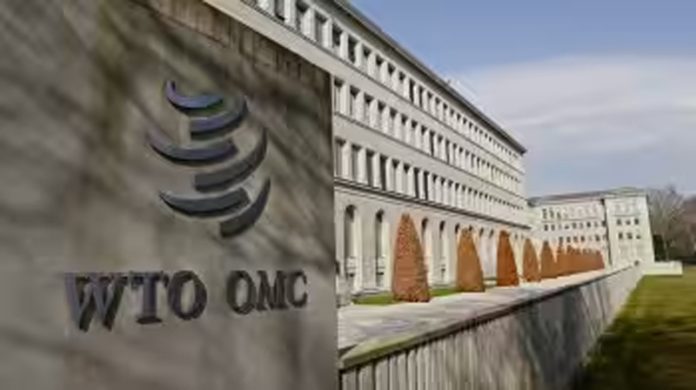NEW DELHI, Oct 28 : The WTO’s dispute settlement body on Monday again accepted a request from India and Chinese Taipei not to adopt the ruling against New Delhi’s import duties on certain information and technology products till April next year, as both sides are engaged in resolving the matter mutually, an official said.
The issue came up during a meeting of the dispute settlement body (DSB) in Geneva.
“The DSB agreed to the latest requests from Chinese Taipei and India,” the Geneva-based official said.
At the October 28 meeting, India and Chinese Taipei once again requested additional time from the DSB to consider the adoption of the panel rulings in the case initiated by Chinese Taipei regarding India’s tariffs on certain high-tech goods.
The two sides had requested that the DSB further delay consideration of the panel reports until October 28, 2024, to help facilitate the resolution of the disputes.
“The parties asked that the DSB further delay consideration of the panel report until 25 April 2025, in order to help facilitate resolution of the dispute,” the official added.
The dispute body had earlier agreed to five previous such requests from India and Chinese Taipei to delay consideration of the reports.
As per the rules of the World Trade Organization (WTO), the panel’s ruling will have to be adopted by the DSB for implementation within 60 days of the release of the order. However, countries can mutually request the body to delay the adoption of the ruling.
In its report, a dispute panel of the WTO on April 17, 2023, said import duties imposed by India on certain information and technology products violate global trading norms.
The ruling followed a case filed by the EU, Japan and Taiwan against these duties in WTO.
In May 2019, Chinese Taipei filed a case against India in the WTO over the import duties imposed on certain electronic goods, including telephones for cellular networks; machines for reception, conversion and transmission or regeneration of voice, images or other data; and parts of telephone sets.
India has stated that these ICT products are part of WTO’s Information Technology Products (ITA-2) agreement, and New Delhi is not a part of this pact. India is a part of ITA-1, signed in 1997, which did not have any obligation to eliminate customs duties on these products.
Besides formulating norms for global exports and imports, the Geneva-based 166-member multilateral body adjudicates trade disputes among the member countries.
According to WTO rules, a member country can file a case in the organisation if it feels that a particular trade measure is against the norms.
Bilateral consultation is the first step to resolving a dispute. If both sides are not able to resolve the matter through consultation, either of them can approach the establishment of a dispute settlement panel.
The panel’s ruling or report can be challenged at WTO’s appellate platform.
Interestingly, the appellate body is not functioning because of differences among member countries in appointing its members. Several disputes are already pending with this body. The US has been blocking the appointment of the members. (PTI)


